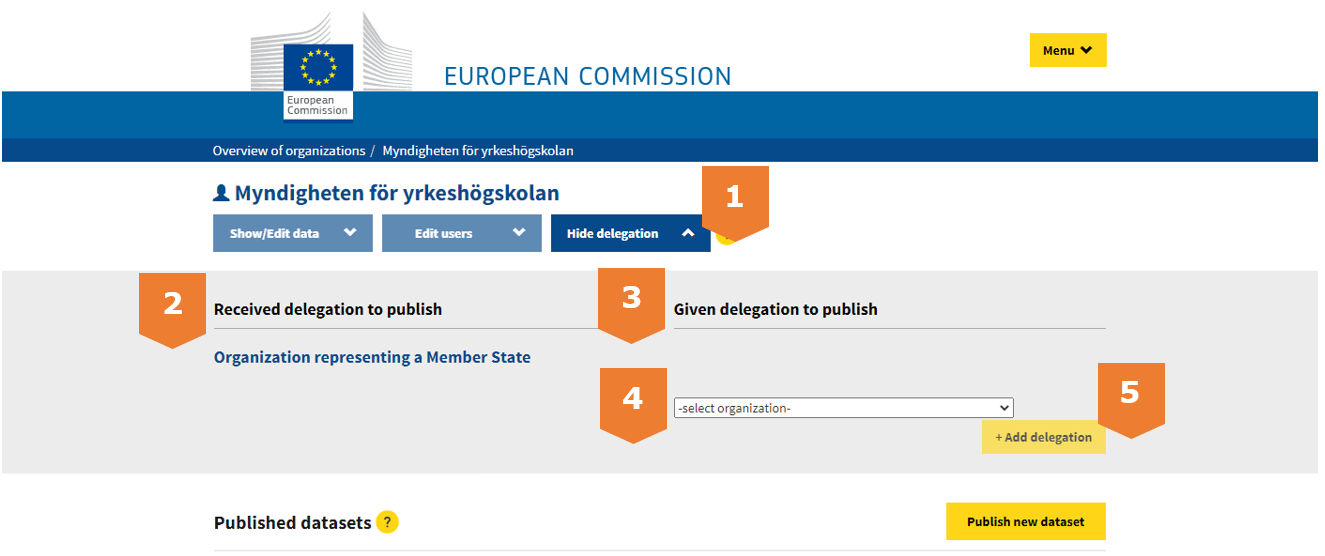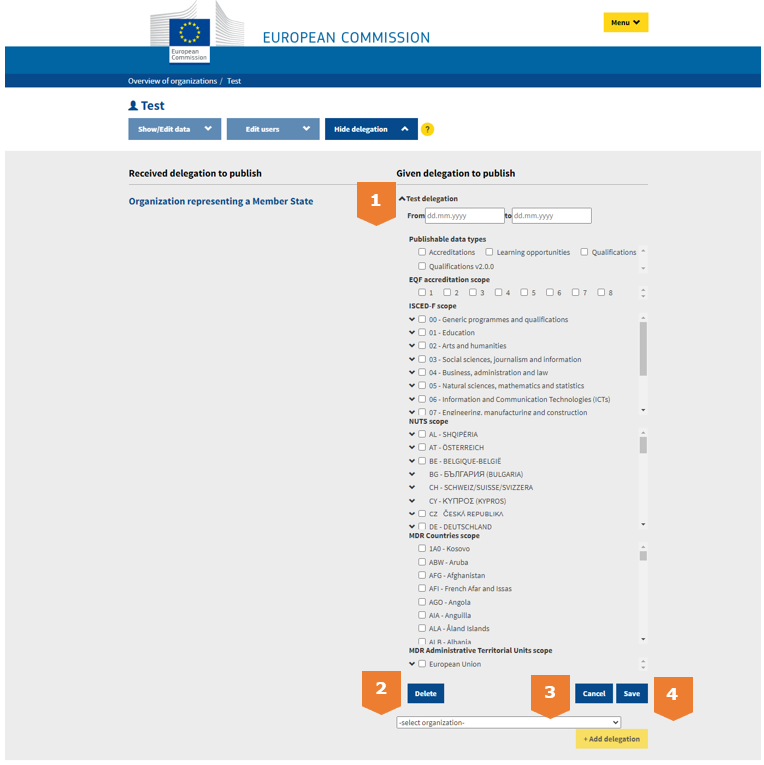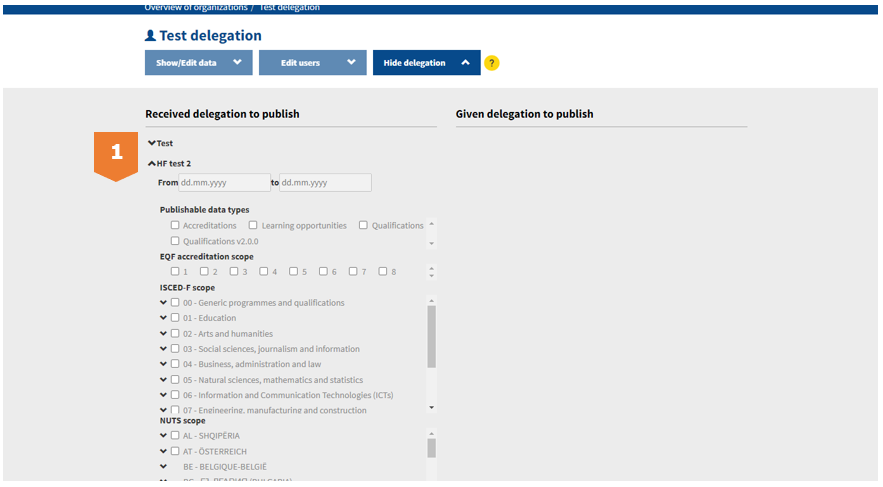QDR - Delegation option
On this page you will learn how you can delegate publishing right to another organisation in the QDR.
Delegation is a mechanism that allows organisations in QDR to assign publishing rights to another organisation. Delegation is managed in a hierarchical structure starting from an organisation representing a Member State which is allowed to publish either qualifications or learning opportunities in QDR.
The organisation representing a Member State can then assign other organisations with specific subsets of data that they may publish in their place. The delegation can then be assigned further to any number of organisations, with the restriction that the organisation giving the delegation must have been given right themselves.
Countries are responsible for appointing one organisation responsible for submitting qualifications and one for submitting learning opportunities to Europass. The European Qualifications Framework National Coordinator Point is responsible for informing the Commission of the responsible organisation. The Europass-Euroguidance representatives are responsible for identifying the structure for learning opportunities. This process is key as access to the QDR is restricted to authorised organisations.
The delegation option, inside the QDR, allows for additional organisations to submit data. National authorities can name another trusted/accredited organisation to submit learning opportunities/qualifications to the QDR. This is particularly relevant as the education and training sector is highly fragmented.
Additionally, making use of the delegation option can be helpful for several reasons:
- Timing: to speed up the provision of data, there is no need to collect all the data centrally first.
- Data Coverage: to fill any gaps in the data that might be available centrally. E.g. if the data is not collected centrally for VET; the national authority can delegate to VET providers directly. This can enrich the available data.
- Future improvements: testing overall Europass functionalities and providing input for possible new developments in the future.
The delegation provider is the authority that is able to delegate to other providers and the authority determines the scope of the data range (e.g. only specific ISCED-F, or EQF levels).
The delegation provider is set at a national level and it is up to the Member States to decide who will be the designated authority.
When assigning a new delegation, you will be interacting with the QDR, as indicated in the image below.
To start, you are required to access the delegation section on the QDR landing page [1] “Delegation”. Here you are able to see two sides of the information:
- [2] Received delegation to publish: Delegation options that were given to your organisation by other organisations in QDR;
- [3] Given delegation to publish: Delegation options that your organisation has given to others.
Once you choose to delegate the publishing rights, you can select the receiving organisation from the dropdown menu [4]. After locating the organisation, you confirm the selection by clicking [5] “+ Add delegation”. Adding an organisation this way extends the interface with detailed parameters of the delegation parameters as visible in the image below.
Indication “Organisation representing a Member State” means that this organisation cannot receive any delegation rights as it already has full permission, and it may give any rights to other organisations.
The parameters [1] that can be configured are the following:
- From/To: Date range in which the receiving organisation is allowed to publish data
- Publishable data types: Types of datasets in which the receiving organisation is allowed to publish data
- EQF accreditation scope: Selection of EQF levels which the receiving organisation is allowed to assign to their data
- ISCED-F scope: Selection of ISCED-F of education which the receiving organisation is allowed to assign to their data
- NUTS scope: Selection of NUTS locations in which the receiving organisation can publish their data
- Publication office (OP) Countries scope: Selection of OP locations in which the receiving organisation can publish their data in
- OP Administrative Territorial Units scope: Selection of Administrative Territorial Units locations in which the receiving organisation can publish their data in
Once assigned the desired scope, you can [4] “Save” the information, undo it using [3] “Cancel”, or completely delete the delegation using [2] “Delete”.
You may delegate only the permissions that were delegated to your organisation by others. Unless you represent a Member State directly, in which case you can delegate any rights.
You can inspect the delegated publication rights of your organisation in a similar fashion as Assigning delegation permission to another organisation, with the difference that the focus is on the Received delegation to publish section, as seen in the image below.
It is possible to have received delegated rights from multiple organisations, as shown in the example [1].
Breaches (i.e. parts of the data that do not comply with the assigned delegation right) in delegated rights are evaluated during the validation of the data. You will receive the information on the outcome in the standard validation report.
For further information on how to publish to the QDR using the delegation option, please visit the Publish your data to the QDR section. The same rules will apply to you.




 Facebook
Facebook
 Twitter
Twitter
 Linkedin
Linkedin